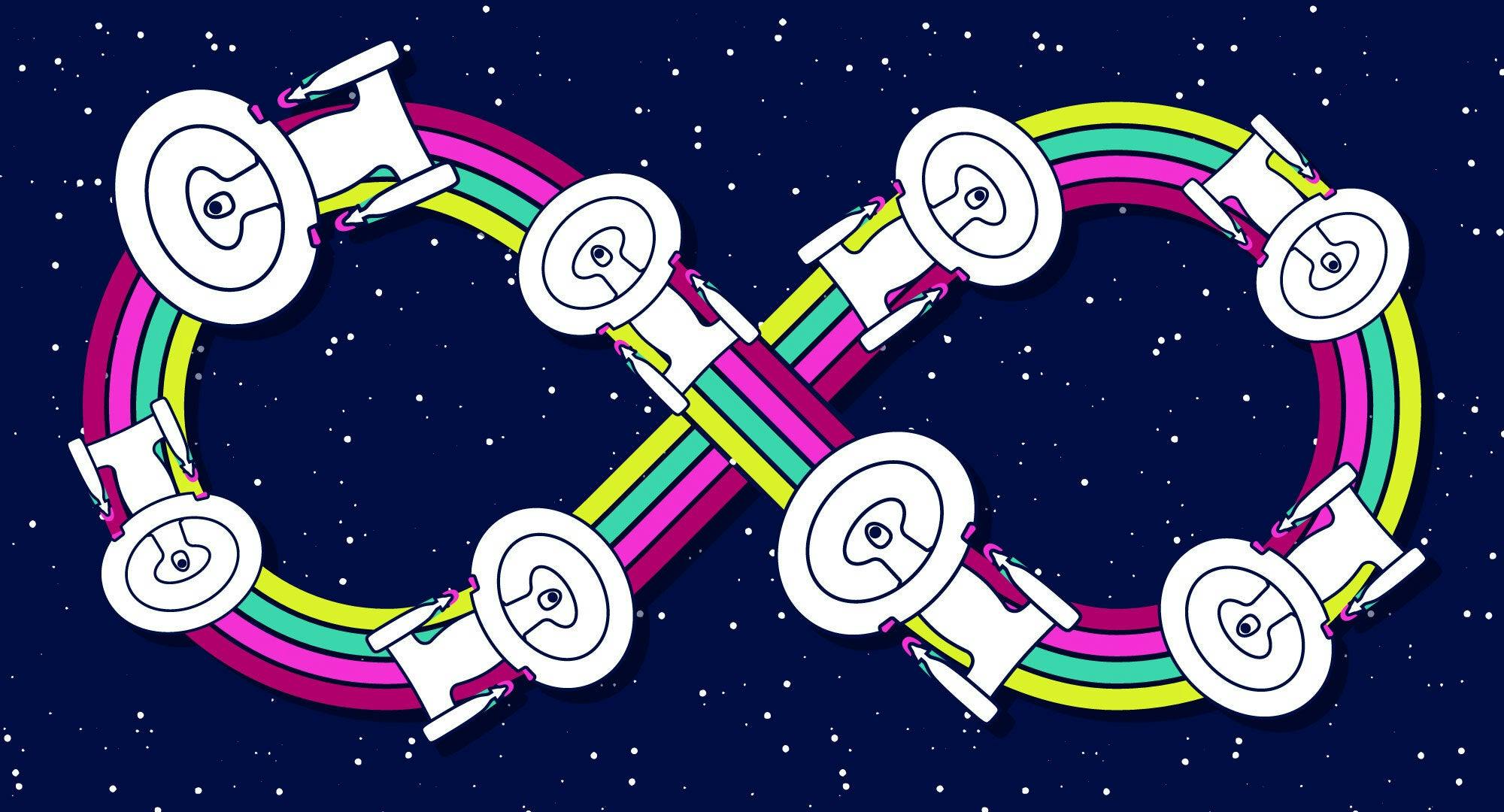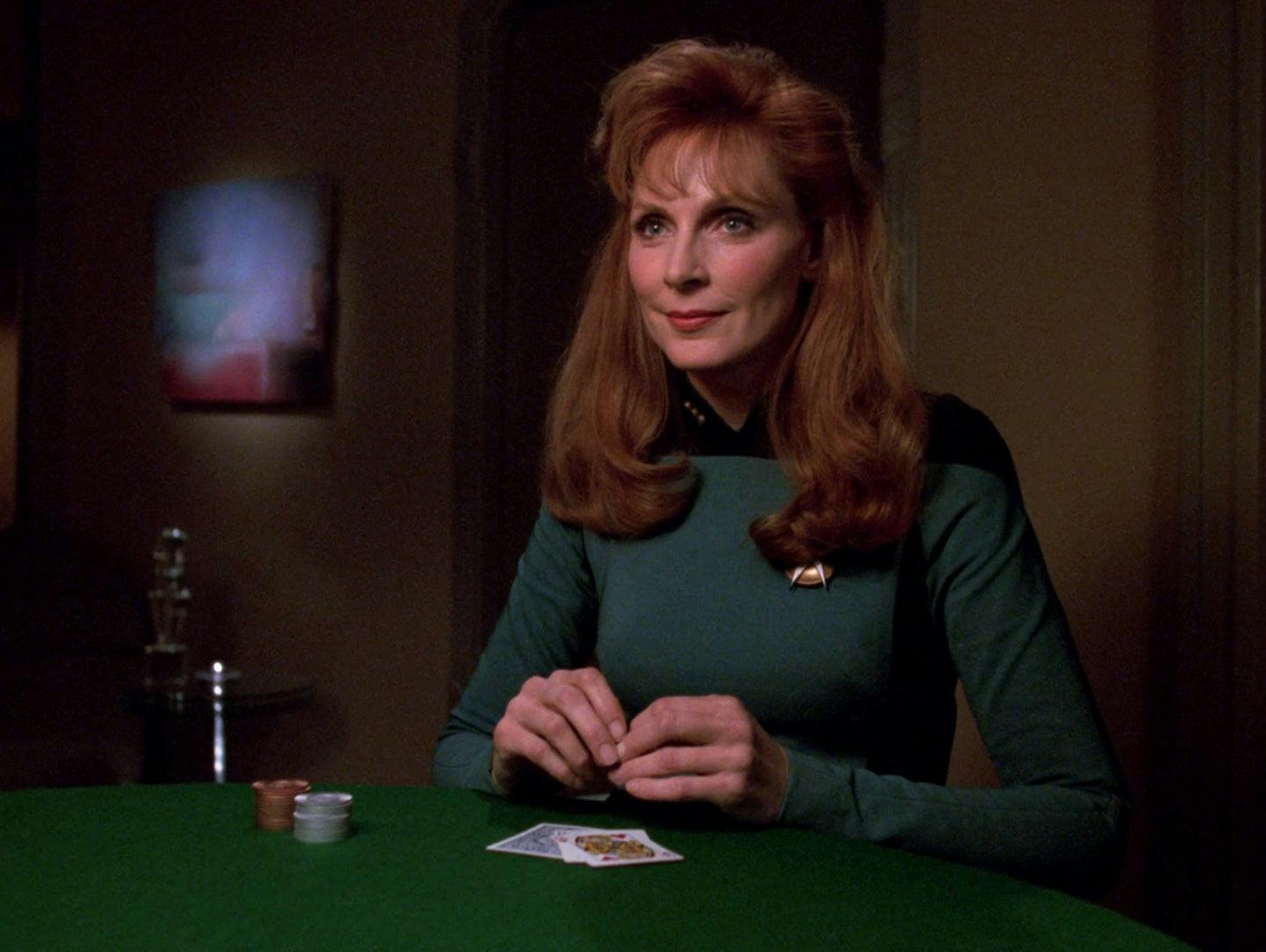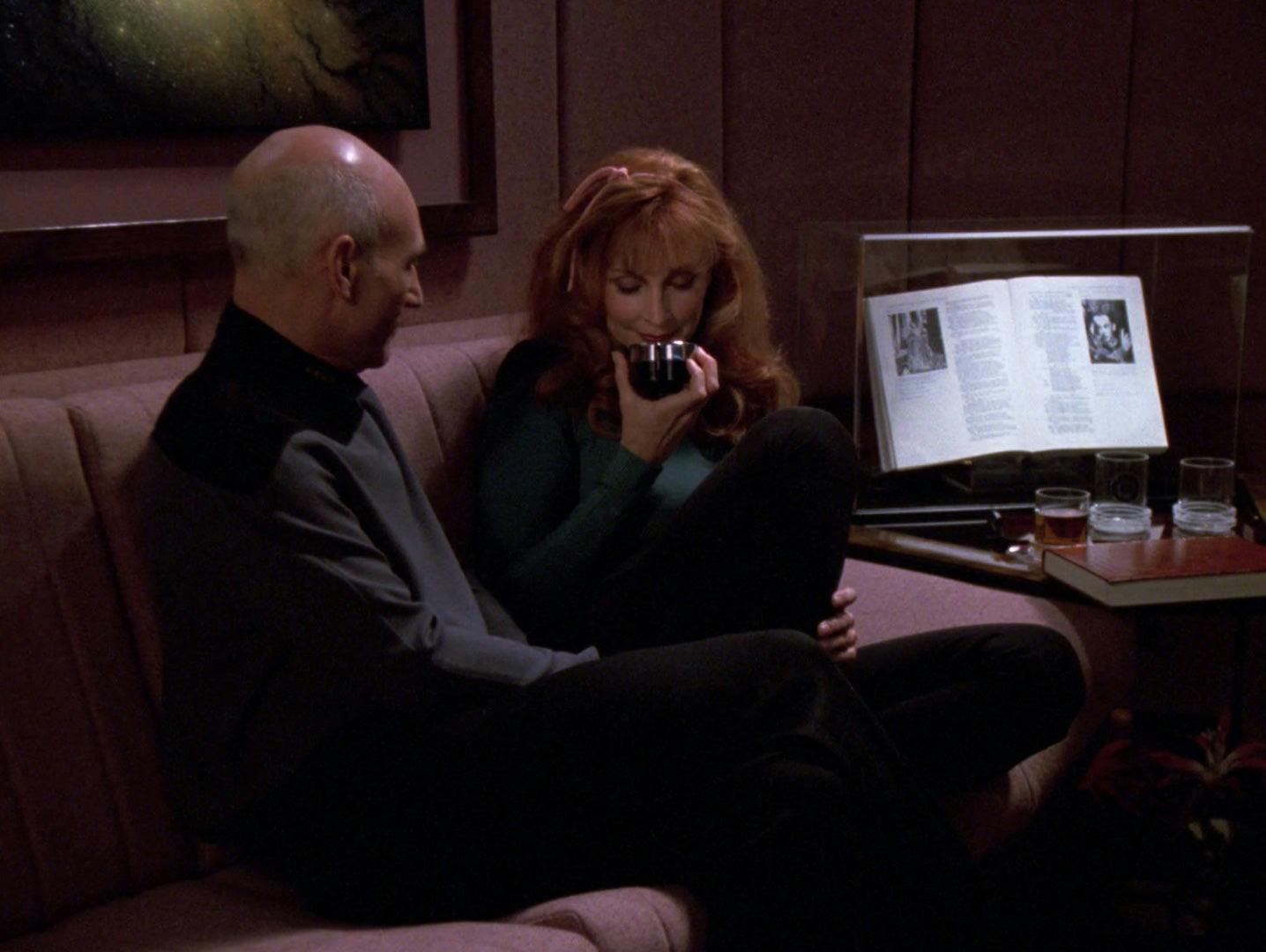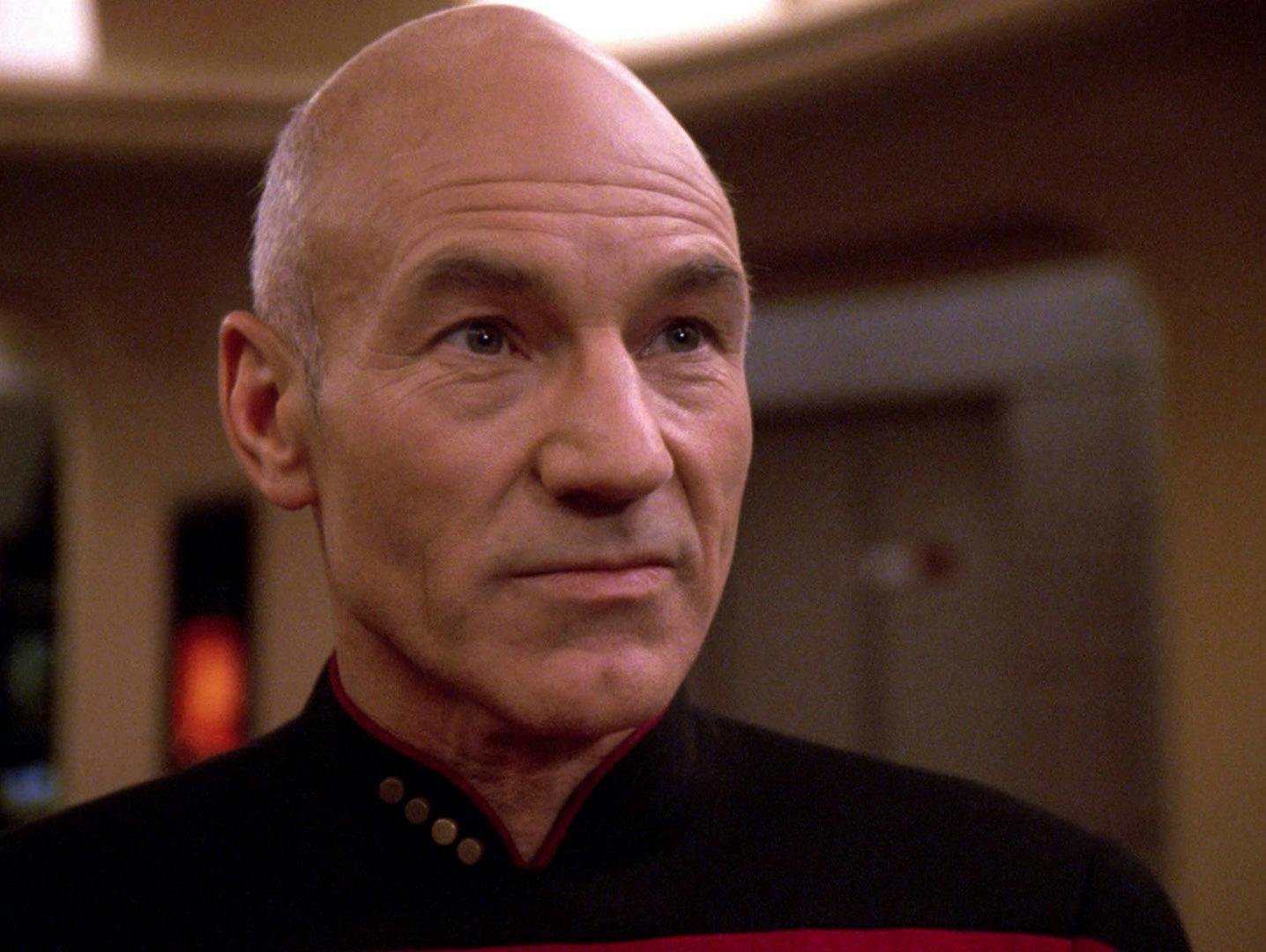Published Mar 23, 2023
What 'Cause and Effect' Taught Me About Seeking Help
Getting stuck in a time loop imparts a key lesson about mental health.

StarTrek.com
A few years ago, when I was halfway up a rock climbing wall, I had a moment of absolute certainty that my belayer was about to walk away and drop me. I had no logical reason for believing that – I knew my belayer, I knew his training and mine, and more importantly I knew he was not the kind of person who would ever drop a climbing rope for no good reason. And yet, somehow, I was still convinced he was going to let me fall.
After that day, I knew I needed to talk to someone about what was going on with my brain. A few weeks later I went to see a psychiatrist, got diagnosed with Generalized Anxiety Disorder, and went on a medication that has been incredibly helpful for my health.
This might seem like a straightforward path from distress to assistance, but I had spent the years before that day at the climbing wall experiencing gradually-worsening symptoms of anxiety while trying my best to hide it, masking feelings and reactions I couldn’t explain until they became unmanageable.
There were many factors that contributed to my ability to finally get help when I needed it – significantly, access to local and affordable mental health care – but Star Trek: The Next Generation episode "Cause and Effect" was also extremely helpful to me at that time in my life.
In "Cause and Effect," the Enterprise crew members begin to have strange experiences they can’t explain. La Forge feels dizzy and has the symptoms of an inner ear infection, but his physical scans come up normal. Crusher, Worf, Riker, and Picard all start having a strong sense of déjà vu while they’re playing cards or reading. Crusher, alone in her quarters at night, hears voices.

StarTrek.com
Then the ship flies into a temporal disturbance, collides with another Federation ship, and explodes.
Then the story starts all over again.
After a few repeats through the time loop, the Enterprise crew figures out what must be happening and manages to send a message to themselves in a future loop through a signal implanted in Data’s brain, saving the ship and allowing them to escape. But the part of the episode that has stuck with me since the first time I watched it is that the only reason the crew survived is because they talked to each other about the things that were bothering them.
During a poker game, Crusher, Worf, and Riker gradually start to feel a sense of knowing what will happen next, even though there is no reason they should be able to know these things. During their first loop, Crusher knows Riker is bluffing and bets high – the next time, he folds early, because he knows she will call him on it. Eventually, the crew is even able to predict which cards will be dealt next. Like my feeling of inexplicable certainty that my belayer was going to drop me from halfway up a climbing wall, these crew members’ experiences of certainty without explanation are a sign that something is seriously wrong. The more they talk to one another about it, the more they are able to progress toward figuring out the exact nature of their problem – just like how I got healthier when I started talking with doctors, loved ones, and people who have had similar experiences to me. Sometimes, speaking openly about a problem can be the most important step toward solving it.

StarTrek.com
In the second time loop we see on-screen, when Crusher hears voices at night, her first instinct is to call Picard — both because he is her captain and because he is her friend. She knows she doesn’t have to be alone with this experience, and she is comfortable enough to talk to a superior officer about it without worrying that she will not be taken seriously or will be putting her career at risk. Picard listens, talks it over with her, and validates her concerns. Even though they don’t know what is causing these voices, they treat Crusher’s experience as something worth paying attention to and investigating in more detail – not something to panic about, at least not yet, but definitely something to follow up on right away. This remains one of my favorite beautifully subtle examples of Star Trek’s utopian vision for the future. According to this episode, mental illness will have become so de-stigmatized that we can all talk about our symptoms – or things that might seem like mental health symptoms, even if they later turn out to be the result of a temporal disturbance – and never have to fear any sort of consequences for acknowledging them openly.
The other aspect of this episode that was pivotal for me along my own journey to accessing mental health care is how "Cause and Effect" treats inexplicable emotions not as hindrances or as things that should be hidden away, but as valuable pieces of information. I love watching the Enterprise crew analyze their experiences until they figure out that they are caught in a time loop because it reminds me so much of the best strategies that I have found to help deal with my anxiety. "Cause and Effect" helped me learn to sit with my feelings of distress and panic without shame and look at them as a neutral thing – asking myself ‘okay, so I know I’m feeling this way, but do I know why? Is there something I can do about it? Is there someone I could talk to who might be able to help?’ It doesn’t matter that what I feel might not make sense at first, because I can do the work of giving it sense, just like the crew did.

StarTrek.com
The final scene of "Cause and Effect" hammers home just how important it was that the crew was able to solve this problem by talking about their experiences openly. When they finally escape the time loop, the other ship – the one they collided with in all the previous loops – hails them for the first time. Although we are never shown what went on with that ship’s crew, we do know that they were not able to solve the time loop problem on their own, despite presumably being affected in similar ways as the Enterprise crew. Perhaps if they had felt able to speak to one another openly about the strange and distressing things happening to them, they would not have been stuck there for over 80 years. Who knows how long I would have been stuck living with untreated anxiety if I hadn’t been at a time and place in my life where I was able to open up on my own.
This article was originally published on March 19, 2020.
Julia Peterson (she/her) is a queer Jewish journalist currently based in Regina, Saskatchewan. She also writes for INK Magazine, The Carillon, and Reading in Translation, and would give just about anything to have a pet tribble. Find her on Twitter @hark_a_julia.

